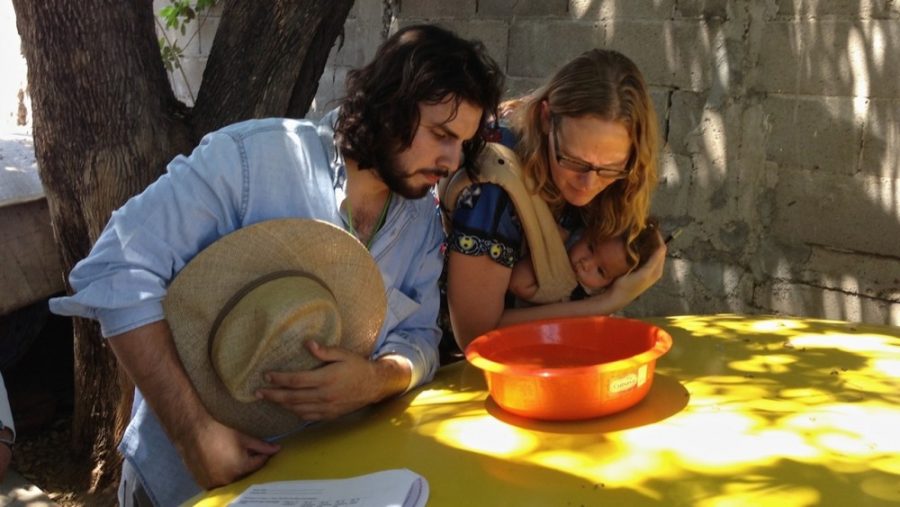The Daily Wildcat sat down with Kacey Ernst, the program director and associate professor in epidemiology at the the University of Arizona, to talk about her work. Her research focuses on the environmental determinants of the transmission and control of diseases transferred by blood-feeding insects like mosquitoes and ticks. Ernst also works abroad and locally to improve the public’s uptake of prevention and control strategies for these illnesses. The interview has been edited for length and clarity.
Daily Wildcat: Is Southern Arizona at great risk of illnesses from mosquitoes that have affected Northern Mexico?
Kacey Ernst: I think it’s something to look out for. Dengue has been transmitted in Sonora now for over a decade, almost 20 years. We haven’t had documented locally acquired dengue infection here in Southern Arizona for a constellation of reasons, but I think it is something people need to be aware of and cognizant of, because we do have a lot of people that go on vacation there as well as individuals who come up from Mexico. It’s important that people on both sides of the border are aware of what’s going on. For example, last year, Sonora was the state with the highest number of Zika cases. Just making sure people understand that it is in close geographic proximity and that we should be motivated to take precautions, be aware of signs and symptoms of disease, be aware of what the mosquitoes look like and be able to take some preventive steps to make sure it does not cross into Arizona.
RELATED: Q&A: Fungi: More than a decomposer
DW: What are some of the most important preventive steps that people can take?
KE: As an individual, if you do a lot of outdoor activity, repellent is actually pretty effective. I know a lot of people don’t like to use it, but DEET is actually the most effective repellent. There are alternatives that are recommended. Picaridin is an alternative. If you want a natural repellent, oil of lemon eucalyptus is the only one that’s really endorsed by the [Centers for Disease Control and Prevention] and public health officials. You can’t put that on kids under the age of three because it is highly concentrated oil, and there is a high tendency of allergy with it. It’s interesting, because as public health officials we can rattle these steps off. We can say wear long sleeves, avoid peak biting hours, wear your repellent, put screens on your windows and doors and treat or empty standing water. There’s a lot of standard precautions that get put in flyers and educational information, but something that I get really concerned about is how much are we actually empowering people to be able to take those steps. You tell somebody they should wear repellent every day, and they can’t afford to buy repellent. You tell people to avoid biting hours, and they are an outdoor worker. I think that we have to be cognizant of what we are asking people and really start thinking about how can we make this a reality so that it’s feasible for everyone. I want people to think about not just themselves. So maybe you are capable of doing these preventive steps, but maybe you live next door to an elderly person who can’t get out and check their water containers. How can we create a culture where people are willing and able to assist the people living around them? Because if you control your environment but your neighbors do not, you could still have mosquitoes coming into your yard.
RELATED: Relay for Life brings community together to run against cancer
DW: Do you have any advice for students who will be traveling abroad during summer?
KE: I know a lot of students will be outside doing field work. One of the things that I suggest for people who will be outside a lot is just take several of their field outfits and clothes that they are going to be wearing outside and do permethrin treating. Permethrin treatment of the clothes is usually effective for ticks and mosquitoes. It can last for 15 to 20 washes depending on how long they are out in the field. Another thing I would suggest is know where you are going. Know what is being transmitted there and be aware of the situation at hand. We’ve done studies where when people know the risk is in close proximity to them, they are more likely to take action. Being aware of what is going on is already going to help people be more cognizant of what they should do to try to reduce their risk.
Follow Marquies White on Twitter















